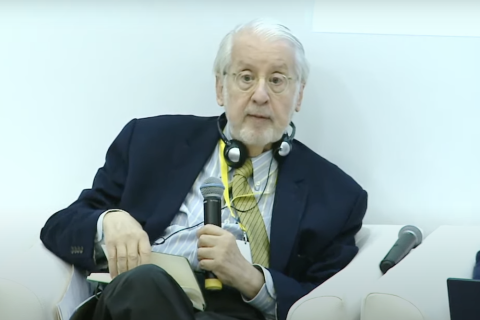The Launch of the Pinheiro Principles Handbook: Advancing Housing and Property Rights for Refugees and Displaced Persons in MENA
Land Management in Times of Crisis: Building Resilience in the Arab Region
Forging a Resilient Future: Key Takeaways from the Third Arab Land Conference Opening Session
Protecting the Roots of a Sacred Tree
With USAID support, an Afro-Colombian community received a collective land title, guaranteeing ownership of their traditional lands.
New data story: Challenges of securing land rights in post-conflict Burundi
How to get displaced Ukrainians back into their housing, land and property quickly
By Yuliya Panfil, Jon Unruh and Michael Cholod
Seven months have passed since Russia invaded Ukraine, displacing more than 13 million people—one-third of the country’s population—and leveling entire towns.
And yet, despite all odds, Ukraine is turning the tide against its more powerful neighbor. Ukrainian forces have staged a rapid counter-offensive, liberating thousands of square miles of territory that displaced Ukrainians are beginning to return to.
The Politics of Crisis Framing (Part 2)
This roundtable session considered how the ‘practice’ of crisis signals an abrupt temporal ‘rupture’ and how this makes it possible to obscure underlying structures of power, particularly in the context of the relation between land and climate. In particular, it focused asked participants to focus on two questions: 1) within your research, how do you see the politics of crisis framing at work and 2) How might a frame of crisis contribute to reinforcing uneven /exploitative relations.
Key Takeaways
Kyrgyz-Tajik Relations in the Fergana Valley: Trapped in a Soviet-era Labyrinth
Recent border clashes between Kyrgyz and Tajik troops, which have thus far claimed the lives of over 50 civilians and military personnel, are the latest skirmishes in what seems to be an eternal pattern of sovereignty-related disputes between the two Central Asian nations. There is a case to be made that the problems in the region, driven predominantly by each states’ respective claims to land and water resources, can be attributed to the legacy of both Kyrgyzstan and Tajikistan’s historical position within the Soviet Union.
اهمية الإدارة الفعالة للأراضي لتحقيق السلام والاستقرار في المنطقة العربية
ترتبط إدارة الأراضي ارتباطًا وثيقًا بالسلام ، فهي مرتبطة بسبل العيش والهوية والسلطة. الإدارة الفعالة للأراضي ، بما في ذلك الجوانب الرئيسية للوساطة وحل النزاعات المتعلقة بالأراضي وحماية حقوق الإسكان والأراضي والممتلكات للجميع ، بدون استثناء تعد حجر الزاوية لتحقيق السلام.
Good land governance is crucial for peace and stability in the Arab region
Land governance is strongly related to peace , it is linked to livelihood, identity and power. Good land governance, including the key aspects of mediating and resolving land-related disputes and the protection of the housing, land and property rights of all, leaving no-one behind, and are cornerstones for peace. In the Arab region, competition and conflict over land and land-based resources has been dramatically intensifying under the growing pressures of climate change, population growth and movements, increased food insecurity, and changing land use.







